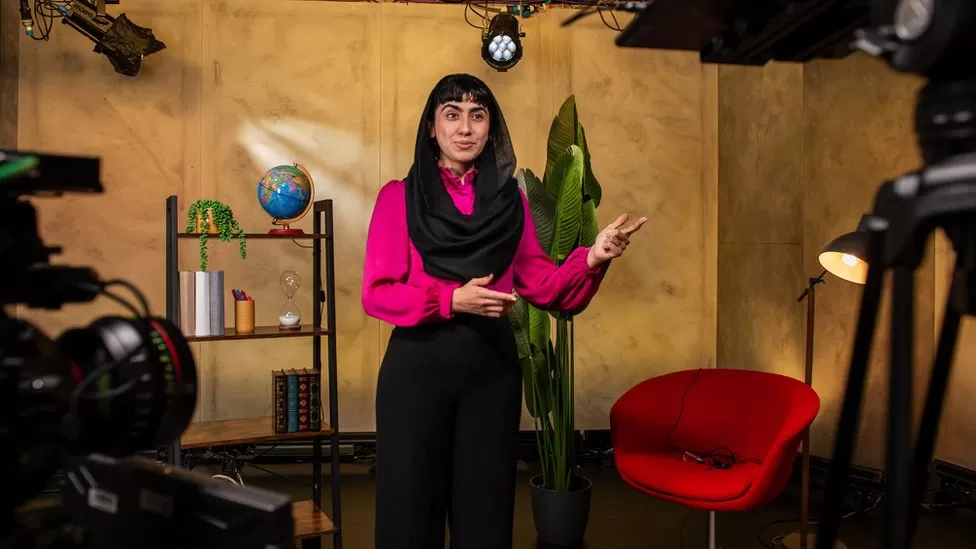
For Afghan youngsters who are prohibited from attending school, the BBC has started a brand-new educational project.
Children between the ages of 11 and 16 are targeted, particularly girls whose secondary education has been discontinued by the Taliban government.
The official languages of Afghanistan are Dari and Pashto, and the name of the weekly show is Dars, which translates to “lesson.”
The BBC Afghan female journalists who were evacuated from Kabul during the Taliban takeover in 2021 serve as its hosts.
On the recently formed BBC News Afghanistan channel, each fresh weekly half-hour episode of Dars will air four times a day from Saturday through Friday.
One of the presenters for the Dari language is Aalia Farzan.
She explains, “I speak to many Afghan girls who are still in the country every day, and they all tell me they can’t attend to school. They frequently appear forlorn and are very powerless.
According to the Taliban, girls’ schools are now closed until a “suitable environment” is established.
They have said that they lack the funds for female-only schools as a result of the decision by the international community to halt humanitarian payments.
The BBC programme, which is designed for kids between the ages of 11 and 16, makes the most of the organization’s already-existing educational materials by adapting maths, history, science, and ICT modules from BBC Bitesize, a free online resource for students in the UK.
One of the program’s producers, Mariam Aman, claims that it took more than simple translation to make BBC Bitesize content suitable for an Afghan audience. If we are discussing fractions in maths, do a child or girl living in rural Afghanistan know what pizza is, or should we continue to refer to it as large round bread?
Also, the crew aimed to give the programme a homely atmosphere. Chess sets are typically present in most family houses since Afghans enjoy playing it, the author claims. We wanted to include that cultural history in our show and have elements like that on site,” the statement continued.
When Shazia Haya, an Afghan presenter for the BBC, was a child, going to school was a contentious topic.
“My father and older brother told me that I had completed my twelve years of education and that was enough for me. You ought to get hitched.”
Even today, the Pashto presenter still bears their disdain. She claims that her father has no idea what she studied in college or what her favourite topic was because he didn’t care about her education because she is a female.
Shazia’s mother and other female family members gave her the push she needed to enrol in college.
This new BBC programme means a lot to me because of that, she claims. “I understand the importance of education and the struggle that comes from lacking assistance.”
In 1996, the year the Taliban initially seized power in Afghanistan, Aalia was born.
There was a ray of hope for her despite the fact that females’ education was officially prohibited at the time. Her father was a teacher, and she was raised in Takhar, a province in the north where females were still allowed to attend school.
But her family suffered misfortune, just like so many Afghans.
She explains, “My father passed away 16 years ago. I wanted to be a teacher because my father was one, but dad wanted me to be a journalist.
So by enrolling in this programme, I’m realising both my own and my father’s dreams.
Aalia claims that she frequently thinks of her extended family, particularly the young ladies still enrolled in school in Afghanistan.






